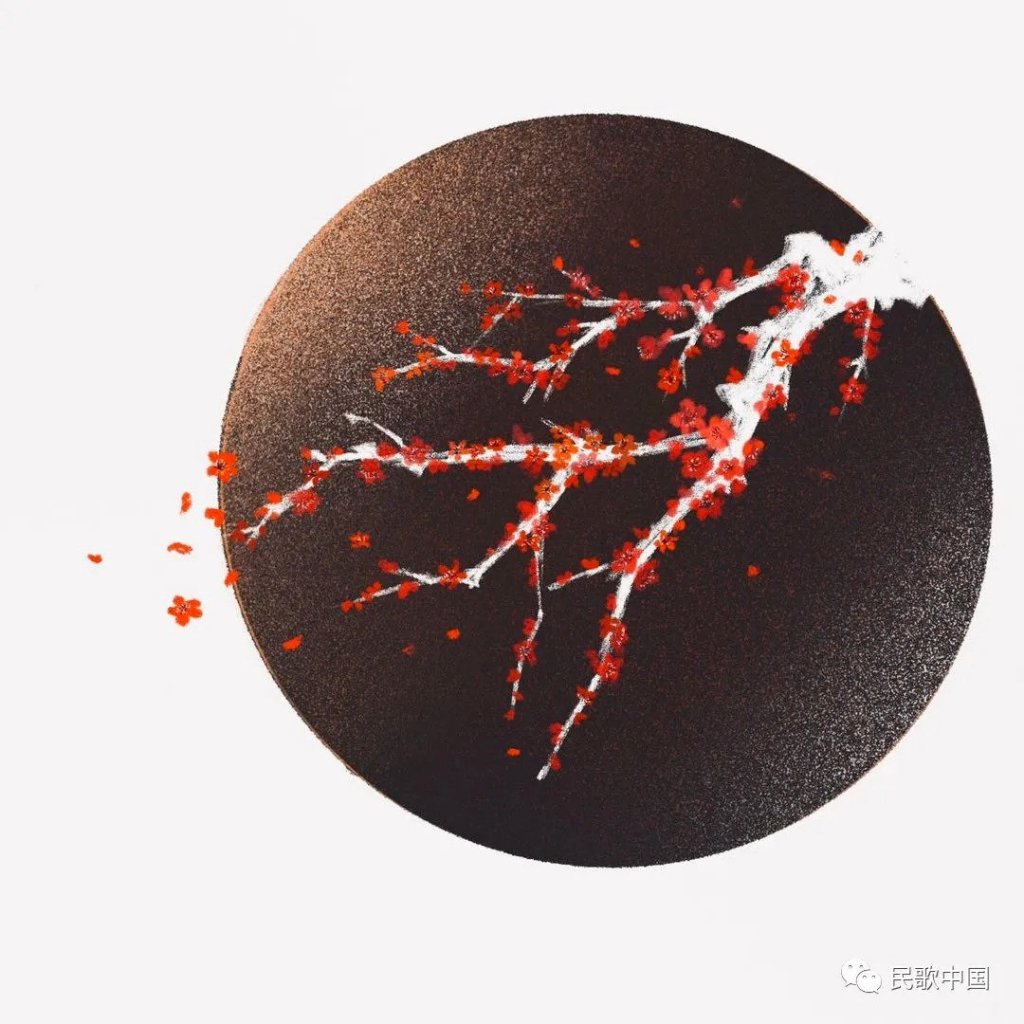
Original Article: https://mp.weixin.qq.com/s/Z9gTqxpZG6nov9C62F2Cdw
Original Author: Xiao Zhan
Hello everyone! I am Xiao Zhan. Today, I will sing the song “Praise the Red Plum Blossoms”, which represents Chongqing, to you.

“Praise the Red Plum Blossoms” 《红梅赞》Song Link: https://mp.music.163.com/5c9c3a0ec91fac1390052994/pages/song/song.html?songId=1439975538
When we speak of Chongqing, the first thing we think of is the Chongqing hotpot. My mundane memory of Chongqing – in summer, there will be a lot of people seated by the roadside, eating the spicy and numbing hotpot while playing finger-guessing games and drinking beer. Previously, when people asked me about how different the spice of Chongqing is, I would reply that Chongqing spiciness comes within numbness. Chongqing (or Mountain City) hotpot is not just about spiciness. The standard Chongqing spiciness has to come with a whiff of fragrance from the spicy hot pepper (TN: which is the main cause of the numbing sensation).
I feel that I am an extremely typical Chongqing resident – I dare to dream and pursue my dreams; I am decisive and straightforward – every single bit of that spiciness in the Chongqing hotpot soup base flows in my blood. I grew up in Chongqing and lived there for about 20 odd years – my biggest impression of any Chongqing resident would be the “resilience”, and that might be due to the fact that we are perpetually climbing (TN: Chongqing is a city that is full of hills and valleys). It seems as though by overcoming hills everyday and going against gravity, we slowly cultivate that spirit of “resilience” in all of us.
After coming to Beijing to develop my career, the time I spend at home is greatly reduced. When I went back recently, I sneaked into an alley and had a pipping hot bowl of Chongqing Xiao Mian (TN: spicy noodles). I no longer remember my childhood days with clarity, but I can definitely remember that familiar flavor. My childhood memories now consists of the endless hills and steps of Chongqing, the yells and shouts from the Bang-Bang Army 棒棒军 (TN: unique to Chongqing, these are porters who use a bamboo stick “Bang-Bang” to hang all of the luggage), and the Chaotianmen 朝天门 Rail, which has since disappeared. I can still recall that, when I was a child, I needed to climb a very, very long staircase to get home, and that it was so tiring climbing that stairs; that I wished there was a slide so that I could “shuu” and slide down when I go down that stairs. But eventually, day-by-day, after going up and down repeatedly, it did not seem so difficult anymore.

There were still a lot of Bang-Bang Army in Chongqing when I was in middle school, and they walked the streets, yelling and shouting, holding that meter long bamboo stick with two green strands of nylon rope. When I go to the Eighteen Steps 十八梯, I can see the Bang-Bang Army of all ages – elderly and children, striving and climbing up, and I can directly infer the spirit of Chongqing residents. Even if life had not been smooth sailing, even if life contained all kinds of setbacks, we continued to steadily look forward, move ahead and never look back.
If you go to Chongqing, you have to go to the Liberation Monument. My parents used to bring me there almost every week, and I thought that it was especially tall. But when I returned recently, there were a lot of tall buildings around it – and it brings the feeling of contrast and conflict between the accumulation of history and the progress of time. It seems like when returning home after a long time, the heart will be filled with an anticipation touched with a tinge of unfamiliarity and uncertainty. However, it is fortunate that no matter how Chongqing changes, she will forever remain as that Mountain City, the Liberation Monument will also be forever on the streets of Chongqing to bear witness to her changes. It seems as though this square stone tablet will etch the history of Chongqing into every of her residents’ bones.
Like my grandmother, who is a typical Chongqing resident. She brought up her four children by herself. I can see the tenacity of Chongqing in her, and I have always felt that she is especially great. When I was a child, she would put me to bed by singing to me, songs like “Night at the Naval Harbor” 《军港之夜》, “Farewell to the Red Army”《十送红军》, “Praise the Red Plum Blossoms”《红梅赞》… I could sing these songs since young, and when I hear them now, it felt as though I went back many years back to my childhood, back to the time where I slept in the arms of my grandmother.
Growing up in the city of Chongqing, the heroic stories depicted in the songs and novels are actually quite close to us. This is because we can see traces of that historic era in every corner of this city. I can no longer remember the first time I visited Zhazi Cave 渣滓洞 clearly, but I still vaguely remember the dark rooms, the Tiger Chair (TN: this is actually a torture device) on display, and the oppressive atmosphere in the air. It was hard for me to imagine the kind of spirit that gave the martyrs to strength to persevere, while they were being tortured by the enemies. I feel that, no matter how detailed any written description can be, it will never be as good as going there, being there and experiencing it yourself.
“Praise the Red Plum Blossoms” 《红梅赞》Song Link: https://mp.music.163.com/5c9c3a0ec91fac1390052994/pages/song/song.html?songId=1439975538
I am extremely happy that I now have the honor to sing “Praise the Red Plum Blossoms”, which was then sung to me by my grandmother. The song’s tune is smooth and graceful, and from the lyrics we can almost see brilliant valiance of the martyrs, who were then trapped in prison, but their spirits remained determined.
This time, I sang the “Praise the Red Plum Blossoms” of my heart to you, and I hope that this song will remind the youth to remember this history, and also to move forward with this piece of history in mind. Just like the recent pandemic, we have worked hard, we have made great sacrifices, but we were not defeated, nor were we submerged in depression and sorrow. Instead, we were motivated to progress ahead and rose from the ashes.
This “Praise the Red Plum Blossoms” is for Chongqing, is for China after the pandemic, is for the youth and is also for myself.
Thank you for the translation. This is at the same time smile and tear inducing.
Que hermosa historia y gracias por compartirnos un poco de tus recuerdos… me encantaria escuchar esa hermosa cancion traducida al español. Bendiciones y muchos exitos!!
Hello! Thank you for translating! It made my day!
Can I translate this article – and maybe others – into Portuguese? I can read and understand English, but it’s not the reality for many Brazilians and I think English is a barrier until now – Chinese even more, I know, but I’d like to share all these beautiful things in my own language. What do you think about it?
Hi, yes go ahead and translate this to Portuguese. Usually my stance is to ask the original writer about this but obviously we can’t contact him. Hahaha, and I don’t think he’ll mind us doing this. So go for it. But for the other articles, maybe not as some of them came with specific requirements when I spoke to the authors.
Do remember to link to the original article and the music so that he still gets the hits 🙂